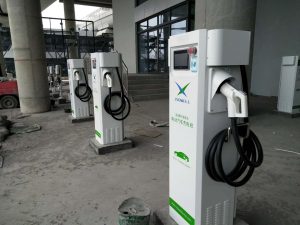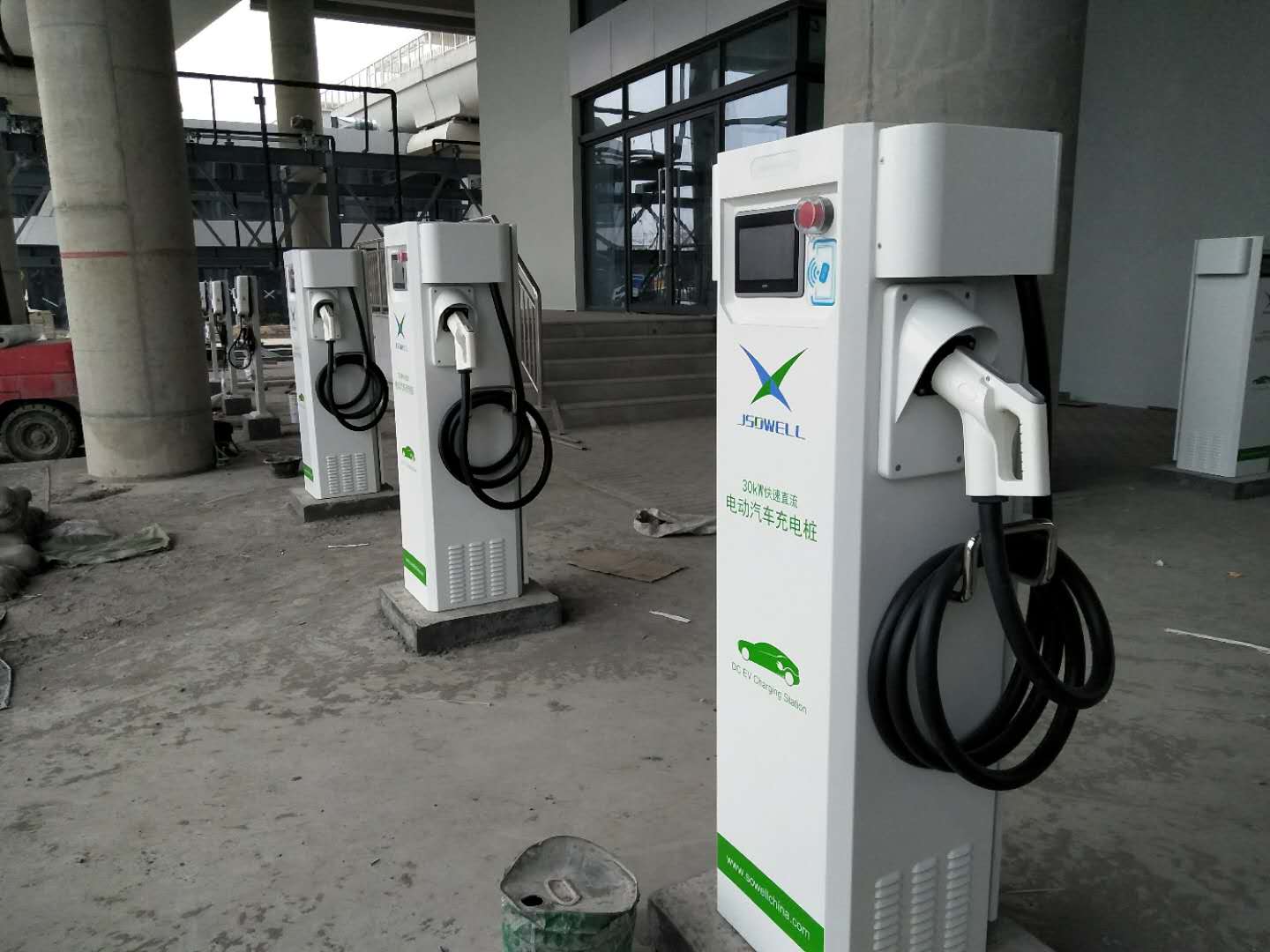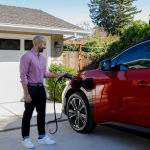Businesses are rapidly adopting EV charging to attract customers and comply with new regulations. For instance, the EU now requires that non-residential parking lots over 20 spaces install at least one EV charging point by 2025. Similar policies and incentives are emerging in the US. As a result, commercial property owners, hotels, workplaces and charging operators are looking for robust, high-capacity charging stations.

Why Businesses Need Quality EV Chargers
A reliable charging infrastructure can be a selling point for businesses (hotels, malls, offices) and is often mandated by law. Commercial chargers must handle frequent use and sometimes harsh conditions. They typically deliver higher power than home units: Level 2 commercial chargers often supply 30–80 A (7–19 kW) per port, enough to add 20–75 miles of range per hour. In high-traffic areas (e.g. highway rest stops or busy retailers), DC fast chargers are common – these can provide up to 150+ miles of range per hour and bring an EV battery to ~80% in about 30 minutes. For example, major EV charging networks like Tesla Supercharger, Electrify America, EVgo and ChargePoint dominate the US fast-charging market.
It’s important that commercial chargers support multiple users smoothly. Many have dual ports so two cars can charge simultaneously. They also feature network connectivity (Wi-Fi/Cellular) so owners can monitor usage, set pricing, and ensure uptime. Look for Enterprise-grade features: payment kiosks or app-based billing, user authentication, energy management to avoid grid overload, and integration with building energy systems. Finally, service and support are key. Top providers offer uptime guarantees (e.g. a 98% uptime commitment with 24/7 remote monitoring and on-site repair coverage). Such service agreements give businesses confidence that the stations will stay operational.
Key Features of Commercial Chargers
When selecting a commercial charger, consider the following:
-
Power and Capacity: Determine whether you need Level 2 (240 V AC) or DC fast chargers (480 V DC). Level 2 stations (usually 7–19 kW) are cost-effective for locations where cars park for hours (offices, apartments). DC fast units (50–350 kW) serve high-turnover spots (gas-station style charging). Each charging port’s power rating dictates charge speed – for instance, a 19.2 kW Level 2 port adds about 60–75 mi/hr.
-
Connectors: Ensure compatibility with your EVs. In the US and Europe, most public chargers use J1772 for AC Level 2 and CCS Combo 2 for DC fast. (Some Asian cars also use CHAdeMO.) If you serve Tesla drivers, note that Tesla Superchargers are proprietary, but adapters exist.
-
Durability: Commercial units should have rugged enclosures (typically IP54 or higher) and withstand weather or vandalism. Many are built with steel cabinets or reinforced plastics. Look for tamper-resistant features and temperature/humidity ratings.
-
Multi-Port and Modularity: Chargers that can serve multiple vehicles (e.g. dual-head stations) save space. Some systems allow adding more pedestals or modules as demand grows.
-
User Experience: A clear display or app integration helps drivers start charging easily. Features like LED status lights, labeled ports, and intuitive payment (RFID card readers or app-based billing) reduce confusion.
-
Network and Software: The best commercial chargers come with cloud software for network management. This lets owners track utilization, set dynamic pricing, restrict access to certain users, and schedule maintenance. For example, ChargePoint’s CT4000 commercial charger is ENERGY STAR certified and offers a top-rated management app and up to 7.2 kW per port.
-
Service and Warranty: Evaluate the vendor’s support package. Many offer 3–5 year warranties. Leading companies even guarantee high uptime (e.g. 98% uptime with proactive maintenance). Confirm response times for repairs and availability of replacement parts.
Top Chargers and Networks
While specific “best” models depend on your needs, several commercial chargers are widely regarded:
-
ChargePoint CT4000: A popular Level 2 station in North America, ENERGY STAR certified, available with single or dual connectors, and backed by the robust ChargePoint network.
-
EVBox Troniq/Tempiqua: Durable AC/DC chargers used in Europe; some models can do 24 kW AC or 50–350 kW DC with CCS.
-
ABB Terra Series: High-power DC fast chargers (150–350 kW) used by fleets and public providers globally.
-
Tesla Supercharger: (Proprietary network) Delivers up to 250–300 kW on the Tesla NACS connector; ideal for highway businesses serving Tesla drivers.
-
Others: Siemens VersiCharge, Blink HQ 200, and Bosch Commercial chargers are reputable Level 2 options.
Several networks ensure coverage: Tesla, Electrify America, EVgo and ChargePoint handle most public DC fast stations in the US. Many businesses install chargers compatible with multiple networks (or open APIs) to attract all EV owners.
Installation and Support Considerations
Commercial charger installation is a significant project. Work with experienced contractors who understand permitting, utility interconnection and ADA/accessibility rules. For example, make sure parking spots and signage comply with local codes. Prepare for electrical upgrades: high-power chargers may require 208/480 V three-phase service, which could involve transformer or panel upgrades.
Budget not only for hardware but also ongoing costs: network service fees, electricity, and maintenance. Good providers offer support plans. For instance, with a top-tier plan you might get 24/7 remote monitoring, performance reports, and guaranteed repair times. Train staff or hire a service partner to keep the equipment in good shape, especially if it’s outdoors.
By selecting reliable, high-powered chargers with strong service agreements, businesses can meet both customer demand and regulatory requirements. Investing in quality EV charging now can future-proof your property and demonstrate a commitment to sustainability.


